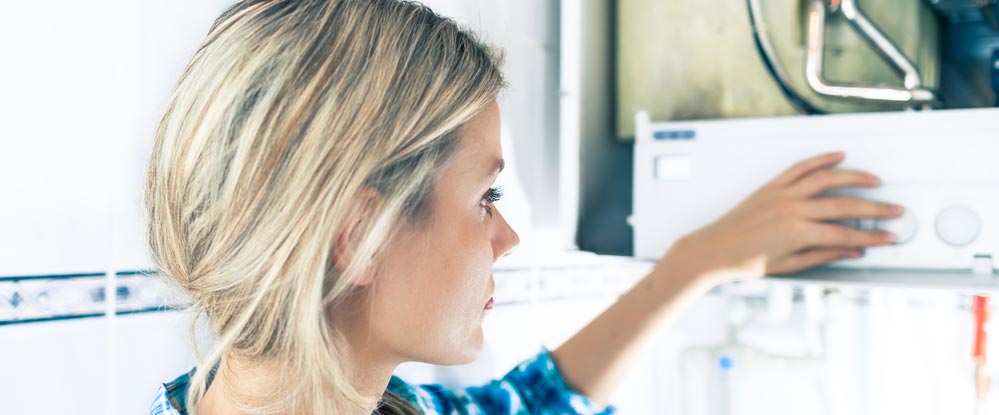Is replacing your old boiler with a new condensing boiler worth the upgrade?

If you’re living with an older, non-condensing boiler, you might be wondering whether it’s worth your time and cash investment to upgrade to a new, efficient model.
After all, if your boiler is still working well, why would you want to change?
When you consider that around 55 per cent of what you spend on energy bills is down to your heating, it makes sense to look for ways to reduce this cost.
Things like insulating the house and using heating controls well can help, but if your boiler is failing to produce the heat efficiently you could be spending unnecessarily.
Here’s what you need to know about condensing boilers:
What is a condensing boiler?
Modern boilers are all classed as condensing, marking a step change in technology that had a massive influence on the ways we heat our homes.
Non-condensing boilers which are well maintained may still be working as efficiently as they can, but a certain portion of your heat is inevitably lost via the flue in the hot gasses. A condensing boiler stops this waste.
Using a heat exchanger, a condensing boiler traps these hot gasses and recovers the heat from them, reusing them to heat your home and water.
Sometimes they cool the flue gasses so well that the water vapour contained in the gas condenses out, which is why they are called ‘condensing’.
As a result, they are much more efficient than conventional boilers and can save you a packet on your energy bills.
Just how efficient are they?
Condensing boilers run at around 94 per cent efficiency.
This means that for every pound you spend on fuel, you’re getting out 94 pence worth of heat for your home.
In contrast, a non-condensing boiler runs at between 53 and 79 per cent efficiency, although poorly maintained and older models may be much less.
Pros of condensing boilers
If you do decide to invest in a new condensing boiler, you could unlock a whole raft of advantages, including:
- Increased energy efficiency: Up to 35 per cent increased efficiency means you’ll spend less to heat your home.
- Smaller carbon footprint: A condensing boiler could save up to 1,200kg of CO2 per year, reducing your carbon footprint as a household.
- Safer: In a condensing boiler, combustion happens at a lower temperature; around 55 degrees C compared to 180 degrees C in non-condensing models. They are also perfectly sealed to ensure heat insulation, which means there is no risk of toxic substances entering the home.
- Smaller: Condensing combi boilers are very compact, and can easily be stored in a kitchen cupboard.
It’s important to gain a balanced view on condensing boilers, so as well as all these advantages it is important to be aware of the drawbacks associated with changing over, such as:
- Require an external pipe: The need for an external pipe means these boilers must be fitted to an external wall. This could be a problem if, for instance, your old system is located in your airing cupboard.
As a general rule, changing to a condensing boiler is almost always the best option when thinking about how to heat your home. If your old boiler still works well and you’re happy with it, there’s no harm in using it until it begins to give you problems. However, the sooner you upgrade, the sooner you can enjoy cheaper energy bills.
How much could you save?
Depending on the age and condition of your existing boiler and your current fuel bill, you’ll be able to save of up to £425 per year on your fuel bills.
The smaller your home and the more efficient your old boiler is, the less these savings will be.
In addition to your savings, some installers are offering scrappage scheme discounts for an old boiler when you upgrade to a new boiler plus energy efficient one.


